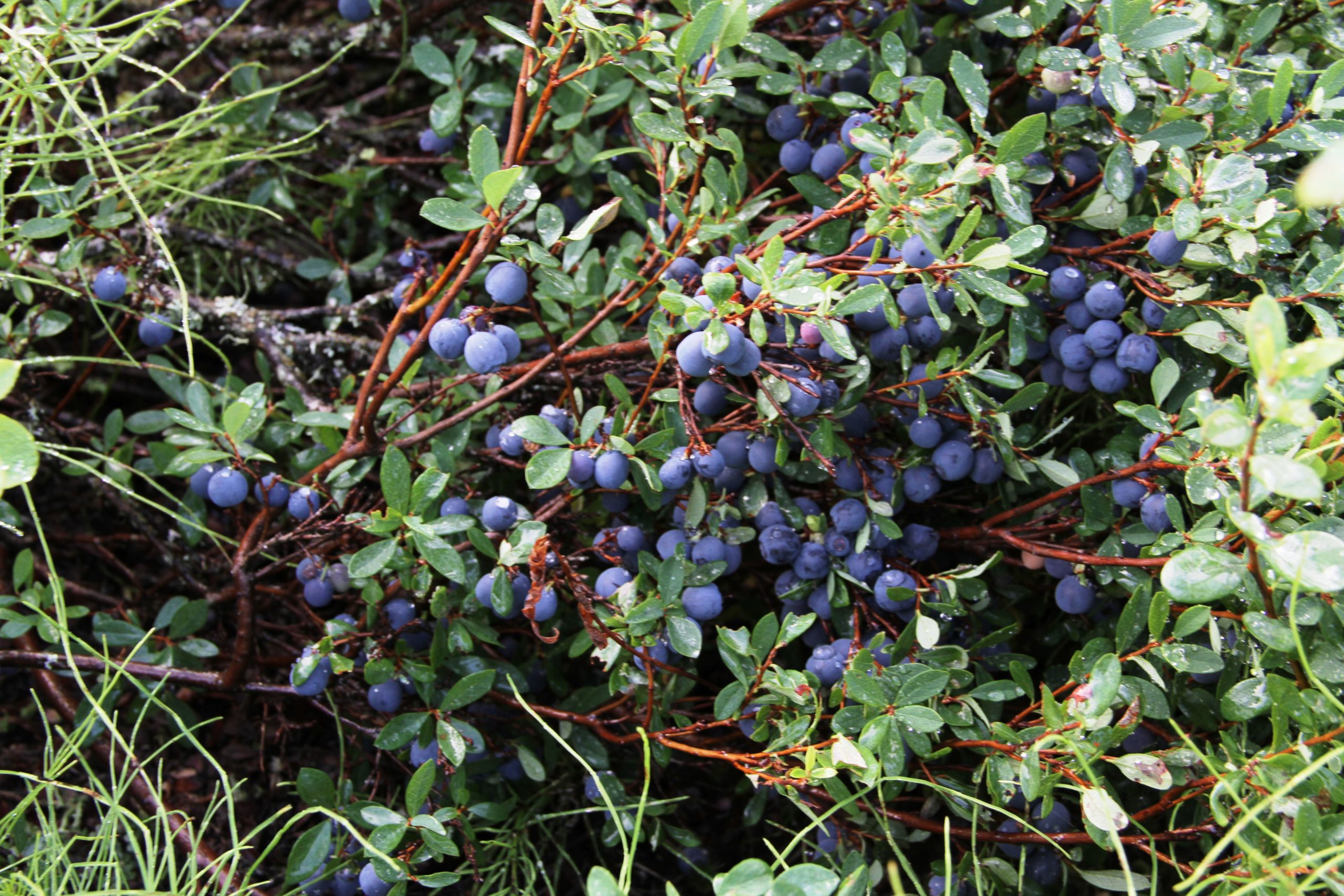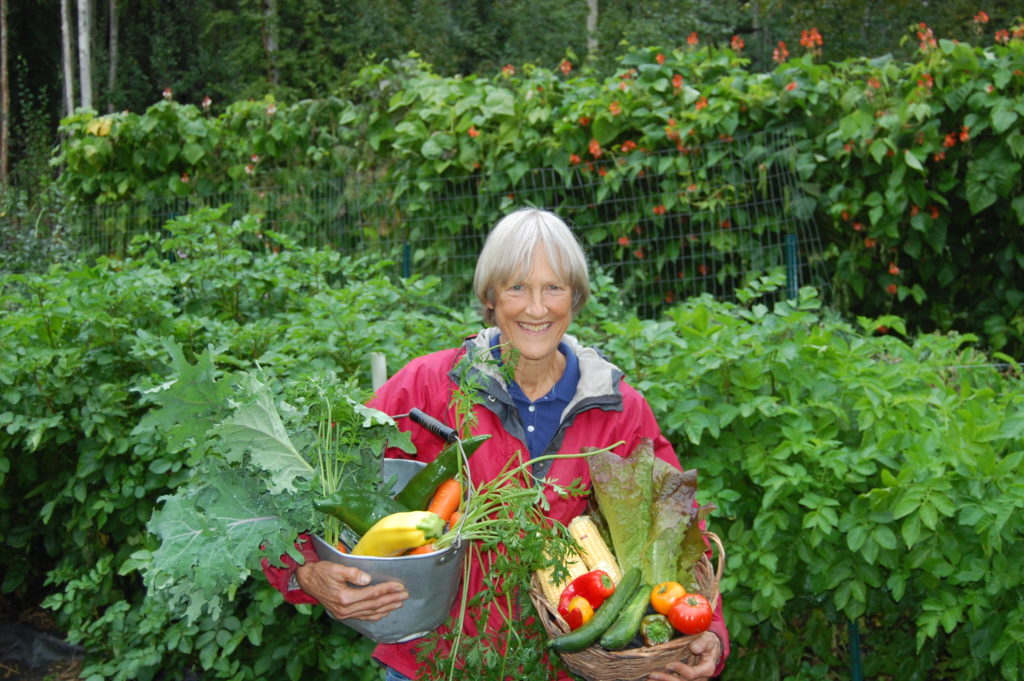For some, blueberry* picking is a laid-back, fun activity. For my family, it’s a competitive sport—the winner being the one who picks the most and biggest berries in the least amount of time.

A little pruning goes a long ways — this heavily laden bush was in my backyard where I regularly pruned the bushes.
Picking berries is also something that brings us together. It’s something I’ve done with my grandma, mother and sisters since I was young, something my daughters do with me and something that results in a tasty reward chock-full of antioxidants. Wild or citified, learning a little about these marvelous blue pearls can help us protect and boost their production for generations to come.
First, the land may need protection. The Blueberry Preserve in Goldstream Valley exemplifies how a community coalesced to protect a popular and productive blueberry spot. On private land, protect your berries by not building or landscaping over them. Trust me, it’s easier to maintain a blueberry patch than a lawn and a lot yummier, too.
Invasive species are another looming threat to blueberries. Many people remarked on the bountiful, hefty blueberries this year. Did you notice how lush the bird vetch was too? Although there are many invasive species to weed and control, bird vetch is particularly onerous because it can invade undisturbed areas, unlike many invasive species that only thrive in disturbed areas. The Winterberry and Berry Futures projects are great resources for monitoring berry patches across Alaska especially in the face of a changing climate. Continue reading
